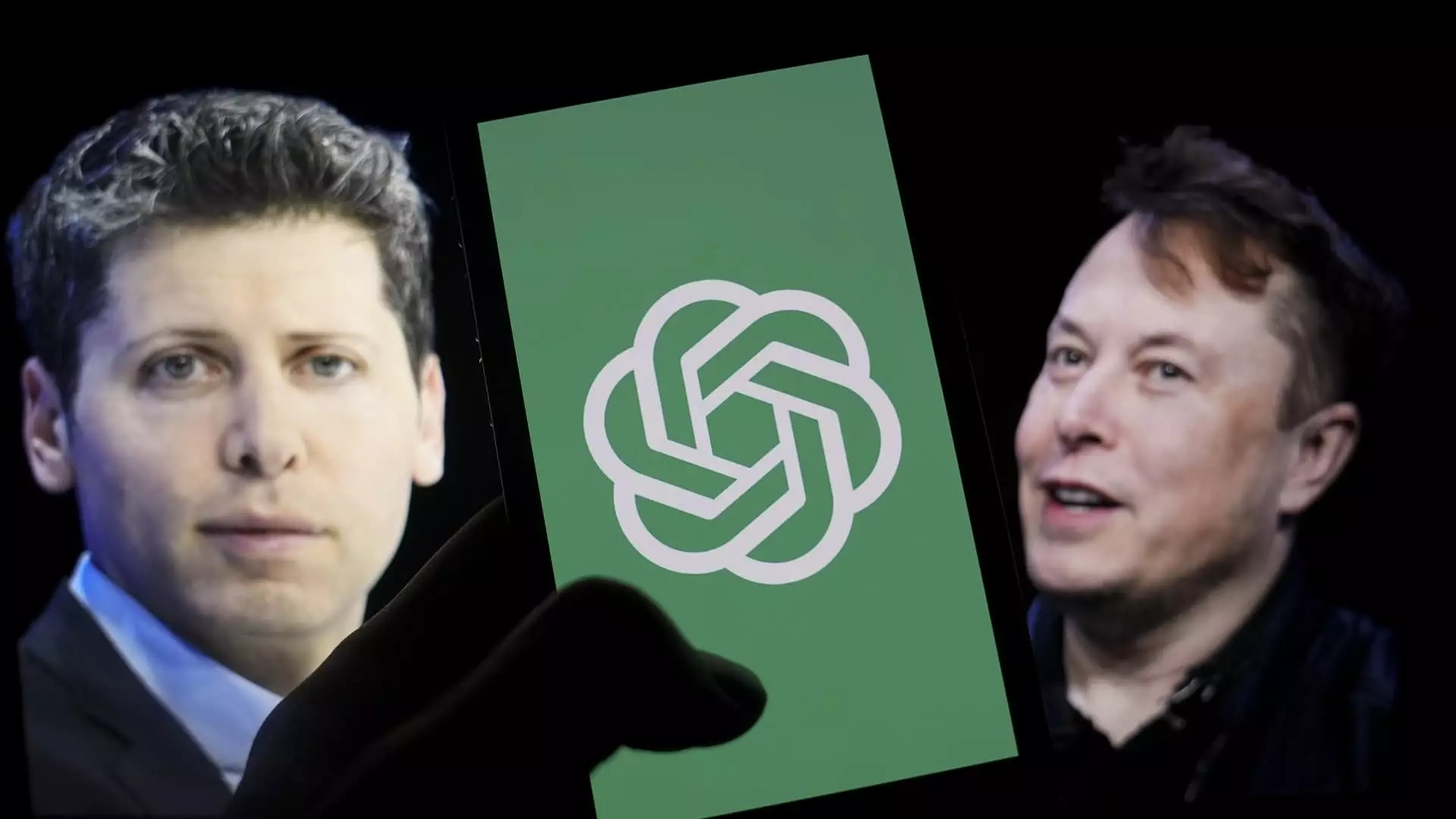The legal confrontation between Elon Musk and OpenAI has escalated, raising significant questions about the future of artificial intelligence and corporate governance in tech. Initially founded with a mission to ensure that AI benefits all of humanity, OpenAI has undergone significant changes since its inception. Musk, a co-founder himself, now finds himself at odds with the organization over its shift toward a fully for-profit model. The conflict peaked recently when Musk’s legal team sought a federal injunction against OpenAI, surging the dispute into the national spotlight.
Musk’s legal maneuver comes amidst growing concerns regarding fair competition and the ethical use of artificial intelligence. In a striking turn of events, Musk alleges that OpenAI has created an anti-competitive environment by effectively preventing its investors from supporting rival ventures. This situation raises urgent questions about monopolistic practices and how they could stifle innovation in the rapidly evolving AI landscape.
At the center of Musk’s argument is the assertion that OpenAI, alongside Microsoft, has engaged in actions that violate the Racketeer Influenced and Corrupt Organizations Act (RICO) and various antitrust laws. His legal representatives assert that OpenAI’s practices reflect a concerning trend in the tech industry’s approach to competition. Claiming that they benefit from “wrongfully obtained competitively sensitive information,” Musk’s lawyers argue for strong legal action against what they deem to be a violation of fair market principles.
Musk’s attorneys have gone as far as to describe OpenAI’s evolving corporate structure as a “Frankenstein” of sorts—suggesting that it has pieced together a model that primarily serves its financial interests, rather than its originally intended mission of AI for the public good. This sentiment reflects a broader concern that, as corporate interests overtake foundational ethics, the future of AI may veer toward profit maximization at the expense of its transformative potential.
In response to Musk’s claims, OpenAI maintained that the allegations are “baseless.” This dismissal adds another layer to the complex relationship between Musk and OpenAI’s current leadership. The organization argues that their shift to a for-profit model is part of a broader strategy to secure funding necessary for substantial AI advancements. It contends that the criticisms levied by Musk stem from a misunderstanding of the business landscape in which AI operates today.
OpenAI’s ability to raise significant capital—such as the massive valuation it achieved in recent funding rounds—illustrates the market’s excitement about AI technologies. However, it also serves as a backdrop to Musk’s grievances, as he has launched his venture, xAI, to carve out his stake in the AI market. The push for competitive fairness becomes even more critical when considering how the influence of large corporations can dictate the future of smaller startups.
As Musk continues his pursuit of legal redress, the implications go beyond personal grievances. The ongoing legal tussle raises alarms about how entities like OpenAI and Microsoft shape the directing forces within the AI ecosystem. The Federal Trade Commission’s (FTC) interest in scrutinizing the partnership dynamics among AI developers further signals a growing concern over potential monopolistic behaviors that can hinder competition.
The fact that the generative AI market is expected to exceed $1 trillion in revenue over the next decade presents both enormous opportunities and dangers. As businesses invest heavily in AI, the balance between innovation and market fairness will be critical. High-profile disputes such as Musk’s against OpenAI bring to light the challenges of navigating a market that is both innovative and fraught with ethical complexities.
As Musk’s case continues to unfold, the echo of this legal confrontation will likely resonate across the AI industry. The outcome could potentially reshape how AI companies structure their operations and interact with each other. Should Musk’s claims gain traction, it may prompt companies to reassess their competitive practices to avert legal repercussions, possibly opening doors for a more equitable playing field.
The revitalization of discussions around ethical AI practices may also spur legislators and regulatory bodies to put frameworks in place to guide future corporate conduct within the industry. The trajectory of AI’s evolution hinges on its ability to remain accessible, accountable, and aligned with its original vision of benefiting humanity. The Musk and OpenAI saga serves as a unique case study in examining how personal rivalries can intertwine with broader industry dynamics and determine the future of technology.
As the legal drama unfolds, all eyes remain on the implications for corporate governance and competition in the AI industry, highlighting an urgent need for regulatory frameworks that champion both innovation and ethical responsibility.


Leave a Reply